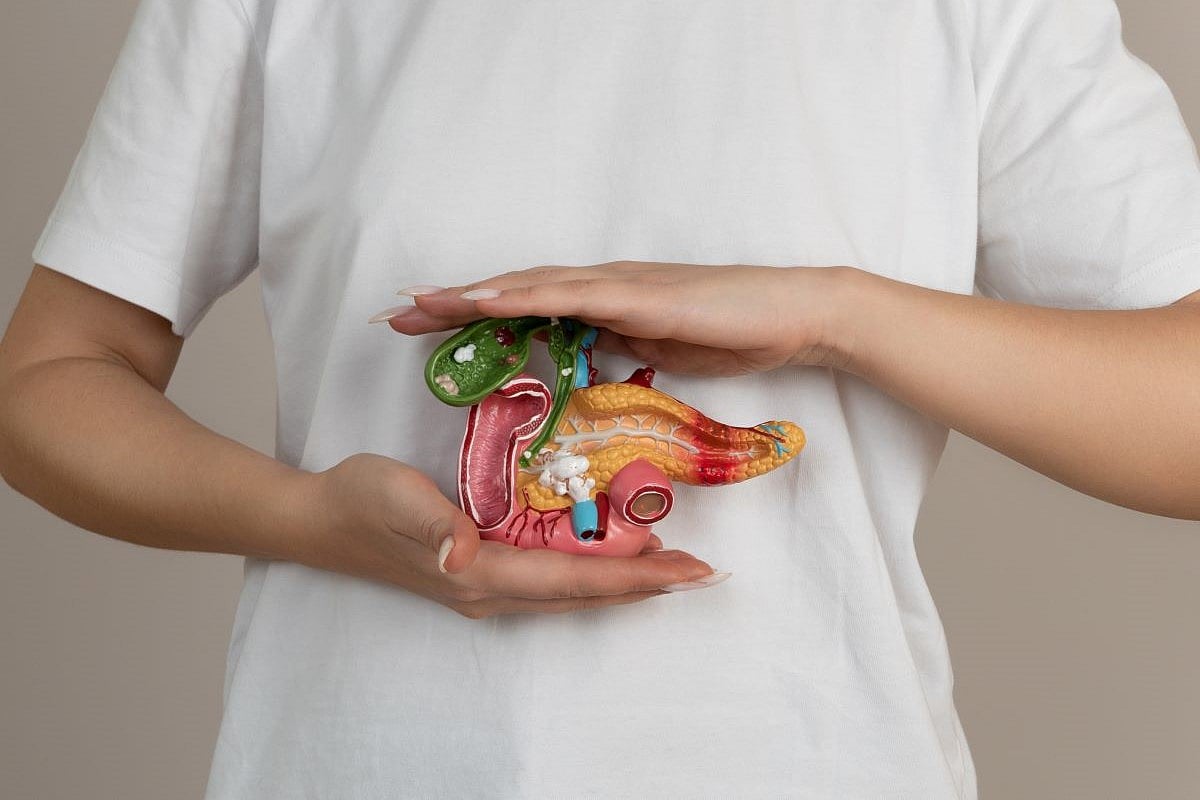Get Healthy!

- Posted August 12, 2025
New Vaccine May Help Stop Deadly Pancreatic Cancers From Coming Back
A new vaccine aimed at a common cancer gene mutation could help stop aggressive pancreatic cancers from coming back, a small clinical trial suggests.
Pancreatic cancer is one of the most lethal cancers, with a five-year survival rate of about 13%, according to the American Cancer Society.
Further, up to 80% of cases return after treatment, the National Institutes of Health says.
“If you were to ask me what disease most needs something to prevent recurrences, I’d say this one,” Dr. Zev Wainberg, a leader of the trial, told NBC News. He’s co-director of the University of California, Los Angeles gastrointestinal oncology program.
The experimental vaccine targets KRAS gene mutations, which are found in about 25% of all cancers, the University of Texas MD Anderson Cancer Center says. This includes up to 90% of pancreatic cancers and roughly 40% of colon cancers.
While these mutations have long been considered impossible to treat with drugs, researchers are finding new ways to target them.
The vaccine, called ELI-002 2P, uses small chains of amino acids called peptides to train the immune system to spot and destroy cells with KRAS mutations.
Unlike many cancer vaccines that are custom-made for each patient, this one is designed to be off the shelf, meaning it doesn’t require the tumor to be sequenced before it's used, NBC News reported.
The Phase 1 study — reported Aug. 12 in Nature Medicine — included 20 people with pancreatic cancer and five with colon cancer. All had KRAS mutations and had already undergone surgery and chemotherapy.
Blood tests after surgery showed microscopic evidence of residual disease — cancer cells too small to see on scans. These leftover cells can cause the cancer to spread and return.
Post-surgery, participants received up to six priming doses of the vaccine, with 13 also getting booster shots. In all, the process took six months.
Here's what the results showed:
85% (21 of 25 participants) had an immune response to the KRAS mutations.
About two-thirds of those had a strong enough response to help clear lingering cancer cells.
Nearly 70% developed immunity to other tumor targets not included in the vaccine.
A few “super-responders” had exceptionally strong immune reactions and the best outcomes.
In the pancreatic cancer group, patients survived for an average of 29 months, staying recurrence-free for more than 15 months after vaccination.
“That far exceeds the rates with resectable [surgically removable] cancers,” Wainberg said.
Cancer vaccines have been difficult to create because cancer cells share many proteins with healthy cells, making safe targets hard to find. Advances in mRNA technology and faster gene sequencing are now making more effective cancer vaccines possible.
The peptides in this vaccine also have a unique “tail” that helps them stay in lymph nodes, where immune cells are activated — a feature past peptide vaccines didn't have, said Stephanie Dougan, an associate professor at Dana-Farber Cancer Institute in Boston, who was not involved in the study.
More research is needed to confirm the findings, and a Phase 2 trial is now underway to compare the vaccine with standard care.
“The fact that the long-term survival really correlated with T-cell response suggests that the vaccine caused this,” Dougan said, referring to the specific immune cells activated by the vaccine. “The idea that you can target KRAS is really exciting.”
More information
The Mayo Clinic has more on pancreatic cancer.
SOURCE: NBC News, Aug. 11, 2025






